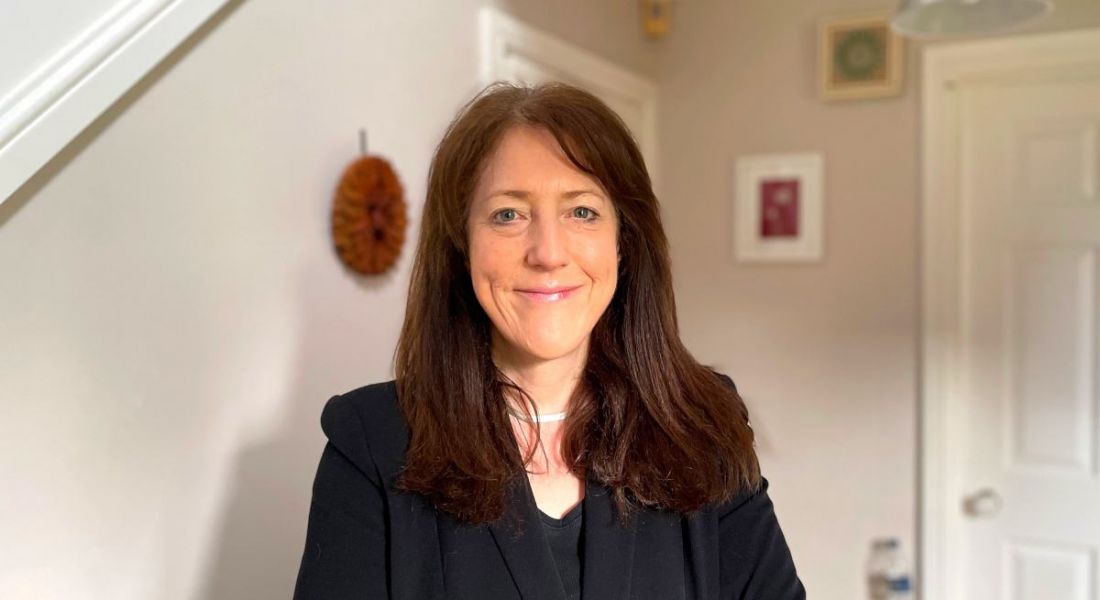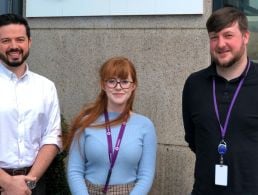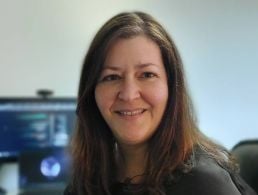Viatris’ Karen MacGregor discusses her role as head of global device development and operations, how she became interested in pharma and the key skills required for a career in this sector.
Karen MacGregor’s first experience of the pharma industry began at the age of 14, when a close family friend gave her a Saturday job at a pharmacy in Edinburgh. After a while of cleaning shelves and serving customers, MacGregor began helping the pharmacist in preparing skin creams and cough mixtures, as was common at the time.
“My interest in how medicines worked in the body and the positive impact on patients’ lives fascinated me and was the driver for going on to study pharmacy at Brighton University and becoming a member of the Royal Pharmaceutical Society,” says MacGregor. “Choosing to work in the pharmaceutical industry has given me some great opportunities to continue to bring medicines to patients, albeit in a slightly alternative approach to a community pharmacist.”
MacGregor would go on to obtain a PhD in pharmaceutics and began an extensive career in the industry before joining Viatris last year as head of global device development and operations. In her role at Viatris, she supports the design, development, design assurance, regulatory approval, commercialisation, technical operations and life cycle management of the company’s medical device and combination product business.
As well as her role at Viatris, MacGregor was recently designated a fellow of the Royal Pharmaceutical Society. “It was a great honour to be designated a fellow of the Pharmaceutical Society last year for services to the profession of pharmacy, but more so to go back to that pharmacist and thank her for giving me that initial opportunity!”
What brought you to your current job?
With the last few pharmaceutical companies I have worked for, there has been a growing and significant focus on patients and the transformation that can happen from medicines that we develop and manufacture for these people. For many, this has been a significant reason for being part of the industry.
The fact that Viatris has the ability to supply high-quality medicines to approximately 1bn patients around the world annually, underpinned by people who trust our medicines, was a major factor in bringing me to this company.
What were the biggest surprises you encountered on your career path?
Some of the surprises have been around how technically challenging some of the projects are, primarily around how you manage to deliver a drug into the human body that will have a positive effect on health outcomes, with little or no undesired side effects. A key part of designing devices intended for delivering drugs to humans (eg drugs for injection, drugs for inhalation) is the development of statistically sound mathematical models that can be used to predict the performance of the drug in a patient’s body.
As we develop more complex products to meet the evolving healthcare needs of patients globally, the ability to better predict the outcomes of clinical trials through enhanced predictive device and drug design is critical to better understand the patient experience. Development of such models for complex products is challenging, and these continue to be an area of scientific research and development to better predict real-world outcomes.
‘A can-do attitude, willingness to learn, progress from mistakes and being open, honest and authentic will get you far’
Was there any one person who was particularly influential as your career developed?
There has been no one person but a few great leaders that have supported me throughout my career. Many of them have allowed me the space to figure out issues and the best path forward for myself. Others have given me the confidence that I can do what is needed, especially in very difficult situations. A few leaders have given me a tough time, but with my best interests in mind – often their approach has meant that I have learnt more effectively and can apply such learnings faster the next time round.
What do you enjoy most about your job?
I know a lot of people answer that it is the team members that make the most difference to how much you enjoy your job. For me, in the role I have now, to be in a position to support and facilitate what is necessary to develop and grow people’s careers is really important. This and achieving a good work-life balance for my team is what I strive for. In previous careers, I and others have experienced negative feelings coming to work, where this shouldn’t be the case. Getting this right is the first step to an empowered and engaged workforce.
Now with Viatris, I’m confident we can add to our strong global device development team that is focused on delivering high quality, safe, robust and effective industry-leading device and combination products.
What aspects of your personality do you feel make you suited to this job?
As a pharmacist, attention to detail is important and in the many areas of drug development –from candidate selection through to fully operational drug product manufacture – having the rigour in what and how you deliver is key. This can be as simple as ensuring the objectives for work are clearly understood to knowing the drivers for effective governance of complex projects.
To be able to collaborate effectively, having a communication style that ensures all voices are heard and an ability to empower teams to achieve their goals have been key aspects of my personality. I am also told that the resilience I have has helped me and my teams reach successful outcomes – there is nothing to fear but fear itself!
What can people expect from career progression in this industry?
Within the pharmaceutical industry there are so many career paths that you can follow that accommodate a wide array of professions. In addition, it’s not surprising to find people performing in roles that are unrelated to their initial degree or discipline. I have known scientists to work in HR, accountants to lead manufacturing teams and engineers to lead drug project teams. Nothing is out of scope. A can-do attitude, willingness to learn, progress from mistakes and being open, honest and authentic will get you far.
What advice would you give to those considering a career in this area?
My advice is to ensure you find out as much as possible as to what is available at the company you want to join or have joined. Ask why people have chosen their career pathway – what has worked and not worked from them? This gives you a lot of background information. I would choose roles that play to your skillset but will still stretch you. Ensure you take charge of your career, working with your manager to develop in areas that will provide all-round experience. One may also consider a coach and/or a mentor.
Find out how emerging tech trends are transforming tomorrow with our new podcast, Future Human: The Series. Listen now on Spotify, on Apple or wherever you get your podcasts.




